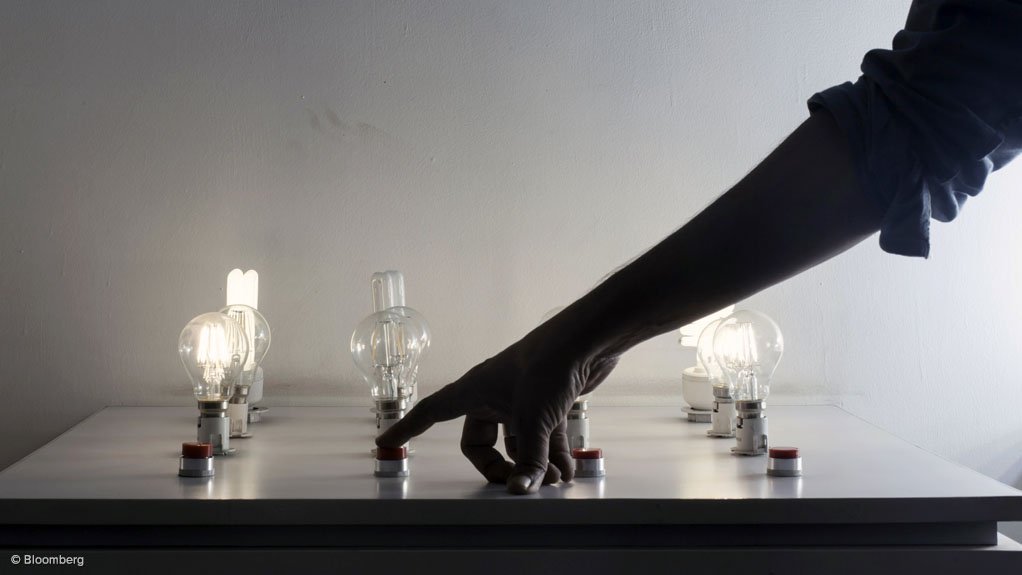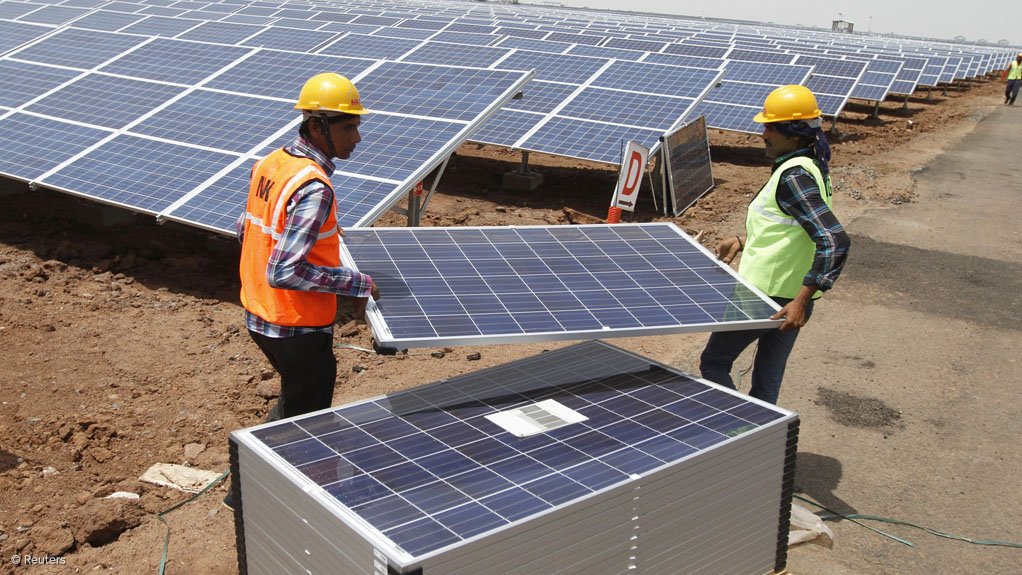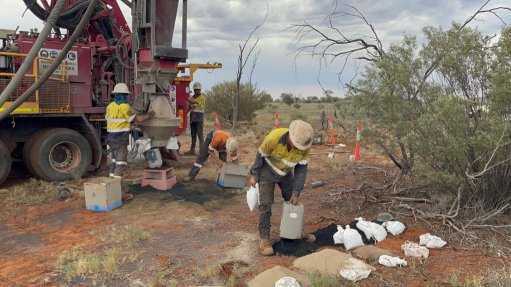Competence Centre promotes energy efficiency awareness in Africa



LIGHTING THE WAY EUREM trainees are taught basic knowledge of energy efficiency, with an emphasis on energy efficient lighting systems
Photo by Bloomberg
SOLAR PAYBACK The CC:SE, together with the South African National Energy Development Institute, are running a three-year project in South Africa
Photo by Reuters
The South African-German Chamber of Commerce and Industry’s Competence Centre for Sustainable Energies (CC:SE), in Cape Town, plays an important role in creating awareness and fostering exchange and business linkages between African and German stakeholders in the renewable energy and energy efficiency sector.
CC:SE manager Jens Hauser explains that the CC:SE is active in the whole of the Southern African Development Community (SADC), most notably in South Africa, Zambia, Namibia, Mozambique and Madagascar. In South Africa, the CC:SE partners with South African Renewable Energy Technology Centre to offer the European Energy Manager training programme (EUREM). The energy efficiency training is held in an extra-curricular timeframe, and consists of face-to-face training and a final individual project.
In 2014 and 2015, a pilot EUREM training programme was conducted in Cape Town, with six participants attaining EUREM certificates. Follow-up evaluations showed that EUREM enhanced the energy efficiency capacities of the companies that participated in the training, leading to a reduction in energy consumption at these companies of up to 20%, Hauser says.
“The EUREM training programme aims to raise trainees’ knowledge of energy efficient technologies, especially with regard to industrial processes, as well as energy management systems.” Hauser notes that the programme teaches trainees how to analyse and calculate performance factors, optimise processes, financial assessment of measures, and by doing that, make systems more cost effective. The next EUREM training will take place in April 2018 in Cape Town.
In addition to the EUREM training programme, Hauser adds that the CC:SE together with the South African National Energy Development Institute, is running the three-year Solar Payback project in South Africa. This project aims to create awareness for solar thermal installations to provide hot water or steam for industrial processes. This sustainable and efficient technology can be applied in most industries, for example, in the food and beverage, automotive, textile, chemicals, pharmaceuticals, mining and agriculture sector.
Solar Payback is executed in four countries simultaneously – South Africa, Mexico, India and Brazil. It is part of the International Climate Initiative, which aims to mitigate global warming through carbon emission reduction.
In addition to facilitating training to upskill the energy efficiency sector, the CC:SE also played an integral role in organising the conference ‘Opportunities for energy efficiency in Namibia’ which took place on October 24 in Windhoek, Namibia. The conference was part of the German Energy Solutions initiative, financed by the German Federal Ministry of Economic Affairs and Energy.
The CC:SE, together with the Renewable Energy Academy and the Namibian Manu- facturers Association, aimed to encourage exchange and explore business opportunities for energy efficient technologies between Namibian and German experts, enterprises and guests at the conference, to further create awareness and sustainable energy investment opportunities.
“Conferences, such as this one, create awareness and support promoting energy efficiency in South Africa and the SADC region, and work to stimulate discussion on the benefits and application possibilities of energy efficient measures, such as macro- economic and financial benefits on a company level,” Hauser points out.
Opportunity for Growth
Hauser says moving towards energy efficiency presents abundant opportunities for new service offerings and service providers that offer innovative solutions for energy efficiency and management. He cites forming energy-service companies, with specific offerings, such as financing models or remote services, will benefit the growing market for energy efficient technology in Africa and South Africa. But funding for new business concepts will also be required.
This would, however, also require that South Africa “look beyond its nose”, Hauser advises, explaining that the country, and Africa, need to look at what has been done or is being done internationally, such as in the European Union (EU).
“Most EU countries were able to strengthen their efforts by including energy efficiency in technical education, for example, in engineering studies.” Hauser predicts that training in energy efficiency will act as an additional qualification that complements a technical or an economic education.
He points to the local manufacturing sector that has progressed in energy efficiency, specifically regarding the level of service providers, as well as using energy efficient technology. He adds that South Africa also benefits from “a relatively high level of industry sophistication and technical knowledge, which other African countries lack”.
Adding to the lack of training and energy efficient technolo- gies in other African countries, Hauser adds that potential stakeholders are also unaware of the benefits of investing in the energy efficiency sector. This can be attributed to misconceptions concerning the expected complexity of energy efficient projects and technology, a lack of awareness, as well as the current negative investment climate in Africa and South Africa.
To improve the lack of training and efficient technologies, Hauser advises that a greater awareness of the economic and financial benefits would drive activities in this sector. “There is a strong need to demystify energy efficiency by helping stakeholders realise that energy efficiency is not necessarily complicated and intricate.”
However, Hauser remains optimistic about South Africa’s growing energy efficiency sector. This, combined with the CC:SE’s passion for creating awareness and fostering energy efficiency conversations among stakeholders, culminates in the chamber’s significant African footprint, as well as its role in growing Africa’s energy efficiency sector.
Article Enquiry
Email Article
Save Article
Feedback
To advertise email advertising@creamermedia.co.za or click here
Press Office
Announcements
What's On
Subscribe to improve your user experience...
Option 1 (equivalent of R125 a month):
Receive a weekly copy of Creamer Media's Engineering News & Mining Weekly magazine
(print copy for those in South Africa and e-magazine for those outside of South Africa)
Receive daily email newsletters
Access to full search results
Access archive of magazine back copies
Access to Projects in Progress
Access to ONE Research Report of your choice in PDF format
Option 2 (equivalent of R375 a month):
All benefits from Option 1
PLUS
Access to Creamer Media's Research Channel Africa for ALL Research Reports, in PDF format, on various industrial and mining sectors
including Electricity; Water; Energy Transition; Hydrogen; Roads, Rail and Ports; Coal; Gold; Platinum; Battery Metals; etc.
Already a subscriber?
Forgotten your password?
Receive weekly copy of Creamer Media's Engineering News & Mining Weekly magazine (print copy for those in South Africa and e-magazine for those outside of South Africa)
➕
Recieve daily email newsletters
➕
Access to full search results
➕
Access archive of magazine back copies
➕
Access to Projects in Progress
➕
Access to ONE Research Report of your choice in PDF format
RESEARCH CHANNEL AFRICA
R4500 (equivalent of R375 a month)
SUBSCRIBEAll benefits from Option 1
➕
Access to Creamer Media's Research Channel Africa for ALL Research Reports on various industrial and mining sectors, in PDF format, including on:
Electricity
➕
Water
➕
Energy Transition
➕
Hydrogen
➕
Roads, Rail and Ports
➕
Coal
➕
Gold
➕
Platinum
➕
Battery Metals
➕
etc.
Receive all benefits from Option 1 or Option 2 delivered to numerous people at your company
➕
Multiple User names and Passwords for simultaneous log-ins
➕
Intranet integration access to all in your organisation




















